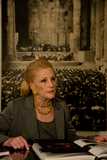May Arida / Lebanon
Show the world
Our new series, national icons, is about people who rise above politics to become symbols of a country’s strengths. First we meet May Arida who has kept Lebanon’s Baalbek festival alive despite wars and threats. She also happens to be our Beirut correspondent’s granny.
While all most music festival organisers have to worry about is the weather or the difficult egos of performers, the concerns of May Arida, are somewhat more GI-Joe-esque. Over the years the president of the Baalbek International Festival – Lebanon’s most celebrated cultural event – has had to negotiate with Palestinian militias, Syrian generals and the pro-Iranian Hezbollah party. This ageless woman is unstoppable when it comes to ensuring her beloved festival takes place each summer in the Phoenician and Roman ruins of Baalbek, a two-hour car ride from Beirut, in the Bekaa Valley.
“I never took sides with a political party, that’s probably my secret. Anyone who doesn’t put obstacles in front of me and works in favour of the festival is my friend. It’s as simple as that,” says Arida.
With politics taking centre stage in the country, it is all the more surprising that the president of the Baalbek Festival since 1972 (with a 21-year lapse because of the civil war) is so popular with everyone from ministers to shopkeepers. “People appreciate Arida’s efforts to bring symphonic orchestras and international rock stars to Lebanon, despite the incredible odds,” says a member of the festival’s committee.
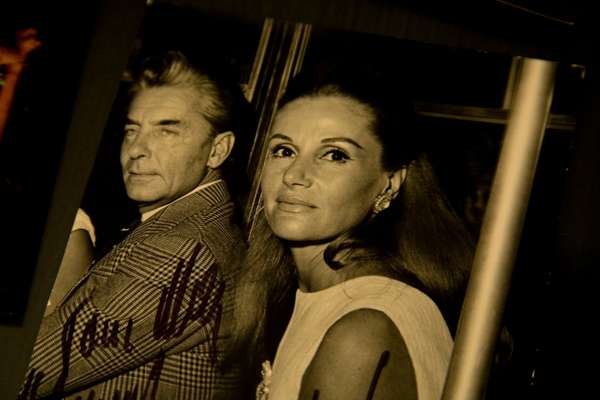
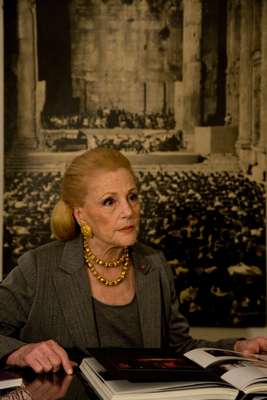
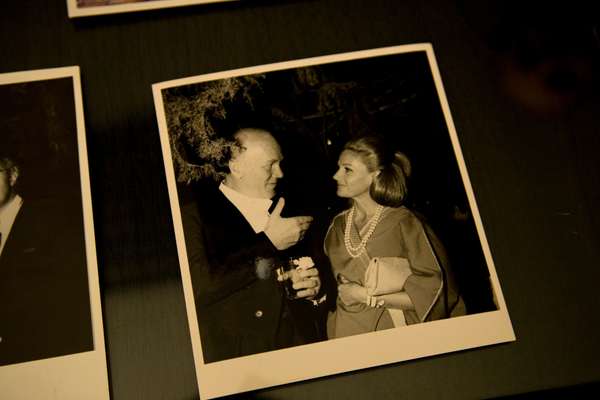
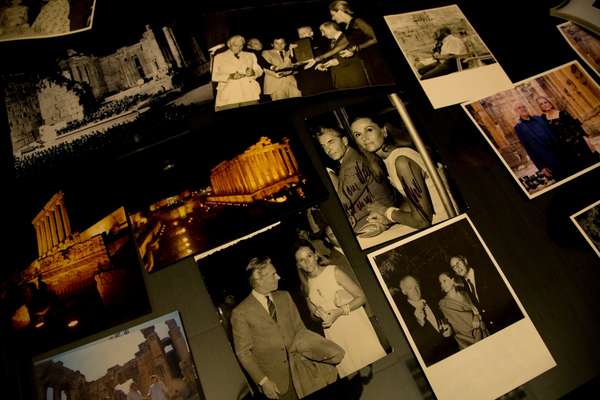
Immaculately dressed and unfailingly blonde, Arida switches from Arabic to French to English with ease. Her office is in downtown Beirut and her modernist apartment overlooks the capital. Arida grew up under the French mandate of Lebanon established in 1920, following 400 years of Ottoman presence. Her godmother was Margot Catroux, wife of the French governor to Lebanon, who proved a useful contact when she visited Paris in 1947. There she met the Surrealist poets Jean Cocteau and Louis Aragon (who later performed at Baalbek).
In the 1950s, the dashing Lebanese president, Camille Chamoun, decided that Lebanon should have its own arts festival and act as a cultural flashpoint in the Middle East. After seeing a ballet with Margot Fonteyn at London’s Royal Ballet, “Chamoun kept repeating that if he became president he would do something extraordinary for culture in our great acropolis of Baalbek,” says Arida. With the help of a handful of music lovers and wealthy Lebanese female patrons, the festival was founded in 1956, under the presidency of Aimée Kettaneh. Fonteyn would soon perform the same ballet Arida had seen with the Chamouns in Baalbeck.
The first festival attracted stars including Cocteau and the unsurpassed Arab diva, Oum Kalthoum. “Four thousand people dressed in black tie came each night. It was incredible,” remembers Arida. “You must realise there was nothing quite like the festival in those days in the region.” Joan Baez, Bob Wilson, Nina Simone, Maurice Béjart and Miles Davis would also over the years perform in the Jupiter and Bacchus temples.
Suddenly all came to a stop in 1975. The country plunged into an ugly civil war and the festival was cancelled. Arida, who was then nominally the festival’s president, stayed in Lebanon while most of the festival’s staff and her family emigrated (Arida married twice and has four daughters). “The reason I never left, even when Israeli tanks were behind my house, is because I didn’t want the Lebanese to end up like the Palestinians.”
The Lebanese army only regained control of Baalbek from the Syrians in 1996 but even so the region was covered with posters of the Iranian religious leader Ayatollah Khomeini and the Syrian president of the time, Hafez al Assad. The memory of Associated Press bureau chief Terry Anderson and the Irishman Brian Keenan who were held hostage during the war in Baalbek, was also fresh. In 1991, in an article entitled “Deep in Kidnapper Country”, Time magazine wrote, “Baalbek is the most schizoid of Lebanese towns, home to both ancient beauty and modern terror.”
So when Arida announced a festival was going to take place the following year, many people were circumspect. “I remember Voice of America called me, asking how we could have a festival in a place where people were being killed.” It took the words of cellist Mstislav Rostropovich to reassure foreigners. “He arrived in Baalbek in an army helicopter and told the international press that no one was being killed here anymore.”
As for Hezbollah, which controls Baalbek and its region, it has created a library of its military achievements next to the archeological site. At one point, they had a guerrilla mannequin climbing up the ruins, but they removed it, at Arida’s demand. Two nights each summer, the festival’s premises are used for the party’s performances. “Usually they hold ghazal evenings, a free flow Arabic poetry session, which I make a point of attending.” Arida, who dresses in vintage Dior, is driven to Baalbek in a 1972 green Chrysler limo. She seems tireless, despite the obstacles. A project to build a museum for the festival designed by Zaha Hadid has been put on hold, while the festival was cancelled in 2006 and 2007 because of Israeli attacks and then violence caused by a splinter Palestinian faction. Finding money has also become harder. “Last year I had to plead with the finance minister to lend us enough money to survive and this year, with the economic crisis, most of our sponsors are withdrawing their support.”
Somehow, though, everyone believes Arida will pull it off, as she always does. “People respect me because I manage to make things happen,” she says. In recent years she has persuaded Sting and Mika to come to Lebanon. And “since it will be the 200th anniversary of Frédéric Chopin’s birth in 2010, there’s no way I can resign yet,” she insists.
Cultural education
May Arida CV
1920s: Grows up listening to opera singer Enrico Caruso
1947: Trip to Paris
1953: Founds Lebanon’s water-ski federation
1956: Creation of the International Baalbek Festival. Arida is named as head of the opera and ballet committees
1969: Becomes the festival’s vice president before taking over the presidency in 1972
1978: Receives the Croix de la Légion d’Honneur by the French ambassador to Lebanon
2002: Receives the honorary “Solidarity Shield” medal from the “Lebanese Resistance” (Hezbollah)
2005: Named commander of the Star and Solidarity Order by the Italian ambassador in Lebanon

